Lecturers and Workshop Speakers
Lecturers
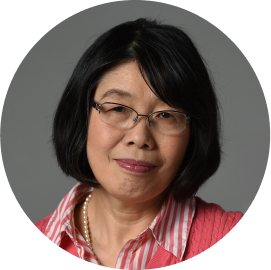
University of Notre Dame
Lecturer for Public Lecture #1
Prof. Sharon HU is a professor in the department of Computer Science and Engineering at the University of Notre Dame, USA. She recently joined the U.S. NSF as a rotating Program Director in the Division of Computing and Communication Foundations. Her research interests include low-power system design, circuit and architecture design with emerging technologies, real-time embedded systems, and hardware-software co-design. She has published more than 450 papers in these areas. Some of her recognitions include the Best Paper Award from the Design Automation Conference and the International Symposium on Low Power Electronics and Design, and NSF Career award. She served as the General Chair and TPC Chair of Design Automation Conference, Real-Time Systems Symposium, etc. She is the Editor-in-Chief of ACM Transactions on Design Automation of Electronic Systems and also served as Associate Editor of other ACM and IEEE journals. Sharon Hu is a Fellow of the ACM and the IEEE.

École Polytechnique Fédérale de Lausanne (EPFL)
Lecturer for Public Lecture #2
Prof. David ATIENZA is a professor of Electrical and Computer Engineering, Head of the Embedded Systems Laboratory (ESL) and Scientific Director of the EcoCloud Sustainable Computing Center at EPFL, Switzerland. His research interests include system-level design methodologies for high-performance multi-processor system-on-chip (MPSoC) and low-power Internet-of-Things (IoT) systems, including new 2-D/3-D thermal-aware design for MPSoCs and many-core servers, ultra-low power edge AI architectures for wireless body sensor nodes and smart embedded systems, HW/SW reconfigurable systems, dynamic memory optimizations, and network-on-chip design.
Prof. David ATIENZA has co-authored more than 400 papers, one book, and 14 patents in these previous areas. He has also received several recognitions and awards, among them, the ICCAD 10-Year Retrospective Most Influential Paper Award in 2020, Design Automation Conference (DAC) Under-40 Innovators Award in 2018, and he is an Fellow of IEEE and of ACM. He is currently the Editor-in-Chief of IEEE Trans. on CAD (T-CAD).
Workshop Speakers
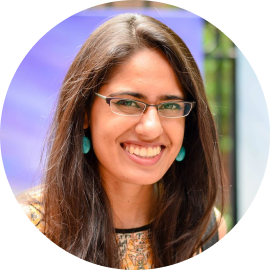
Stanford University
Speaker for Workshop #1
Prof. Priyanka RAINA is an Assistant Professor of Electrical Engineering at Stanford University. She received her BTech in Electrical Engineering from IIT Delhi in 2011 and her SM and PhD in Electrical Engineering and Computer Science from MIT in 2013 and 2018. Priyanka’s research is on creating high-performance and energy-efficient architectures for domain-specific hardware accelerators in existing and emerging technologies and agile hardware-software co-design. Her research has won best paper awards at VLSI, ESSCIRC and MICRO conferences and in the JSSC journal. She has also won the NSF CAREER Award, Intel Rising Star Faculty Award, Hellman Faculty Scholar Award and is a Terman Faculty Fellow.
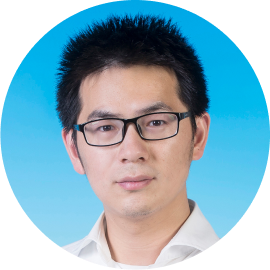
The Hong Kong University of Science and Technology
Speaker for Workshop #1
Prof. Qiming SHAO is currently an assistant professor in the Department of Electronic and Computer Engineering and the Department of Physics at the Hong Kong University of Science and Technology. He received his Bachelor’s degree in 2013 from Tsinghua University and his PhD in 2019 from the University of California, Los Angeles. His lab aims to realize energy and time-efficient hardware for physical and quantum intelligence. His research interests are novel electronic and spintronic materials and structures for memory, neuromorphic and quantum computing applications. His research works are published in top peer-reviewed journals and conferences, including Nature Nanotechnology, Nature Electronics, Nature Communications, Nano Letters, and International Electron Device Meeting. He is a recipient of the 2022 IEEE Magnetics Society Early Career Award and UCLA Distinguished PhD Dissertation Award, 2018-2019 Dissertation Year Fellowship, 2019 Chinese Government Award for Outstanding Self-financed Students Abroad, two Best Poster Awards at the 2018 International Conference on Magnetism, and 2015 Qualcomm Innovation Fellowship finalist. He is the chair of the IEEE Hong Kong Magnetics Society (2023-) and was the chair of the IEEE Hong Kong Joint Chapter of Electron Devices and Solid-State Circuits (2020-21).
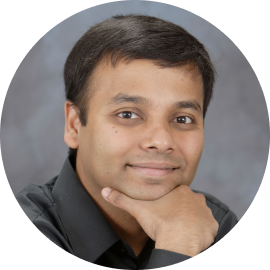
Stanford University
Speaker for Workshop #1
Prof. Subhasish MITRA is William E. Ayer Professor in the Departments of EE and CS at Stanford University. He is also the Associate Chair (Faculty Affairs) of CS. Prof. Mitra directs the Stanford Robust Systems Group, leads the Computation Focus Area of the Stanford SystemX Alliance, and is a member of the Wu Tsai Neurosciences Institute. His research ranges across Robust Computing, NanoSystems, Electronic Design Automation (EDA), and Neurosciences. Results from his research group have influenced almost every contemporary electronic system, and have inspired significant government and research initiatives in multiple countries. Prof. Mitra also has consulted for major technology companies including Cisco, Google, Intel, Samsung, and Xilinx. His honors include the Harry H. Goode Memorial Award (by the IEEE Computer Society for outstanding contributions in the information processing field), Newton Technical Impact Award in EDA (test-of-time honor by ACM SIGDA and IEEE CEDA), the University Researcher Award (by the Semiconductor Industry Association and Semiconductor Research Corporation to recognize lifetime research contributions), the Intel Achievement Award (Intel’s highest honor), and the US Presidential Early Career Award. He is an ACM Fellow, an IEEE Fellow, and a Distinguished Alumnus of the Indian Institute of Technology, Kharagpur.
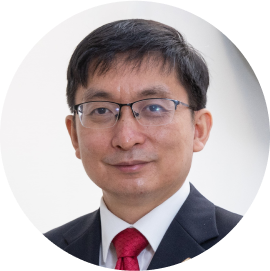
The Hong Kong Polytechnic University
Speaker for Workshop #2
Prof. Yang CHAI is the Associate Dean of the Faculty of Science of the Hong Kong Polytechnic University, Vice President of the Physical Society of Hong Kong, a member of The Hong Kong Young Academy of Sciences, an IEEE Distinguished Lecturer since 2016, the Vice Chair of IEEE EDS region 10, and was the Chair of IEEE ED/SSC Hong Kong Chapter (2017-2019). He is a recipient of the RGC Early Career Award in 2014, the Semiconductor Science and Technology Early Career Research Award in 2017, the PolyU FAST Faculty Award in Research and Scholar Activities in 2018/2019, the Young Scientist Award of ICON-2DMAT in 2019, the PolyU President’s Award in Research and Scholar Activities in 2019/2020, NR45 Young Innovators Award in 2021, Young Scientist of World Laureate Forum in 2021, and a finalist for the Falling Walls Science Breakthroughs of the Year 2022 in Engineering and Technology. His current research interest mainly focuses on emerging electronic devices.
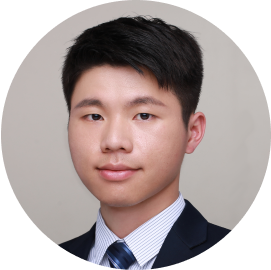
The Hong Kong University of Science and Technology
Speaker for Workshop #2
Prof. Fengbin TU is currently an Assistant Professor in the Department of Electronic and Computer Engineering at The Hong Kong University of Science and Technology. He received the Ph.D. degree from the Institute of Microelectronics, Tsinghua University, in 2019. Prof. TU was a Postdoctoral Fellow at the AI Chip Center for Emerging Smart Systems (ACCESS), from 2022 to 2023, and a Postdoctoral Scholar at University of California, Santa Barbara, from 2019 to 2022. His research interests include AI chip, computer architecture, reconfigurable computing, and computing-in-memory. He designed the AI chip Thinker and won the 2017 ISLPED Design Contest Award. His Ph.D. dissertation was recognized by the Tsinghua Excellent Dissertation Award in 2019. He published two books related to AI chip in 2020 and 2022. Prof. TU’s research has been published at top conferences and journals on integrated circuits and computer architecture, including ISSCC, JSSC, DAC, ISCA, MICRO, and ASPLOS.
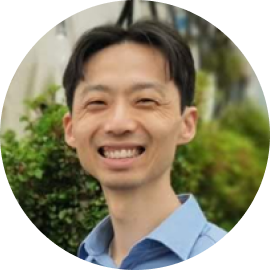
The University of Hong Kong
Speaker for Workshop #2
Prof. Hayden K.-H. SO received his B.S., M.S., and Ph.D. degrees in electrical engineering and computer sciences from the University of California, Berkeley in 1998, 2000, and 2007, respectively. He is currently an Associate Professor and Co-director of the computer engineering program at the Department of Electrical and Electronic Engineering, University of Hong Kong. He is also the co-director and founding member of the Joint Lab on Future Cities at the University of Hong Kong. His research focuses on highly efficient reconfigurable computing system designs and their applications. He has been awarded the CODES+ISSS Test-of-Time award, in 2021, the IEEE-HKN C. Holmes MacDonald Outstanding Teaching Award, in 2021, the Croucher Innovation Award, in 2013, and the University Outstanding Teaching Award in 2012. He is an active member of the international reconfigurable computing community, having served as organizer and technical program chairs of many international conferences in the field, including FCCM, FPL, FPT, ASAP, ARC, HEART, ReConFig, and HiPEAC. He was a cofounder of the International Workshop on Overlay Architecture for FPGA (OLAF) and is a frequent reviewer for journals including ACM TRETS, ACM TACO, IEEE TPDS, etc.
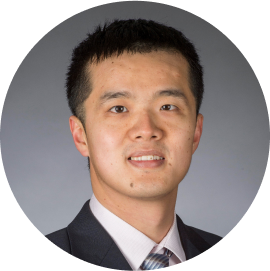
University of Notre Dame
Speaker for Workshop #3
Prof. Yiyu SHI is currently a professor in the Department of Computer Science and Engineering at the University of Notre Dame, the site director of National Science Foundation I/UCRC Alternative and Sustainable Intelligent Computing, and the director of the Sustainable Computing Lab (SCL). He is also a visiting scientist at Boston Children’s Hospital, the primary pediatric program of Harvard Medical School. He received his B.S. in Electronic Engineering from Tsinghua University, Beijing, China in 2005, the M.S and Ph.D. degree in Electrical Engineering from the University of California, Los Angeles in 2007 and 2009 respectively. His current research interests focus on hardware intelligence and biomedical applications. In recognition of his research, more than a dozen of his papers have been nominated for or awarded as the best paper in top conferences, including the 2021 IEEE Trans on Computer-AIded Design Donald O Pederson Best Paper Award. He was also the recipient of IBM Invention Achievement Award, Japan Society for the Promotion of Science (JSPS) Faculty Invitation Fellowship, Humboldt Research Fellowship, IEEE St. Louis Section Outstanding Educator Award, Academy of Science (St. Louis) Innovation Award, NSF CAREER Award, IEEE Region 5 Outstanding Individual Achievement Award, IEEE Computer Society TCVLSI Mid-Career Research Achievement Award, Facebook Research Award, among others. He has served on the technical program committee of many international conferences. He is the deputy editor-in-chief of IEEE VLSI CAS Newsletter, and an associate editor of various IEEE and ACM journals.
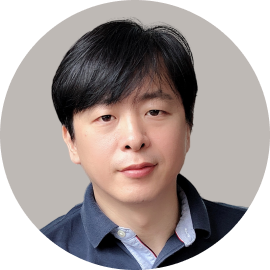
The Chinese University of Hong Kong
Speaker for Workshop #3
Prof. Tsung-Yi HO is a Professor in the Department of Computer Science and Engineering, the Chinese University of Hong Kong (CUHK). He received his Ph.D. in Electrical Engineering from National Taiwan University in 2005. His research interests include several areas of computing and emerging technologies, especially in design automation of microfluidic biochips. He has been the recipient of the Invitational Fellowship of the Japan Society for the Promotion of Science (JSPS), the Humboldt Research Fellowship by the Alexander von Humboldt Foundation, the Hans Fischer Fellowship by the Institute of Advanced Study of the Technische Universität München, and the International Visiting Research Scholarship by the Peter Wall Institute of Advanced Study of the University of British Columbia. He was a recipient of the Best Paper Awards at the VLSI Test Symposium (VTS) in 2013 and IEEE Transactions on Computer-Aided Design of Integrated Circuits and Systems in 2015. He served as an ACM Distinguished Speaker for 2014-2020, a Distinguished Visitor of the IEEE Computer Society for 2013-2015, a Distinguished Lecturer of the IEEE Circuits and Systems Society for 2016-2017, the Chair of the IEEE Computer Society Tainan Chapter for 2013-2015, the Chair of the ACM SIGDA Taiwan Chapter for 2014-2015, and the Secretary General of the IEEE Taipei Section for 2019-2020. Currently, he serves as the VP Technical Activities of IEEE CEDA, and the Executive Committee of ASP-DAC and ICCAD. He is a Distinguished Member of ACM.
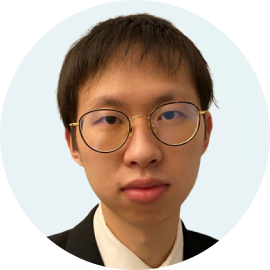
The Hong Kong University of Science and Technology
Speaker for Workshop #3
Prof. Zhiyao XIE is an Assistant Professor in the ECE Department at Hong Kong University of Science and Technology. He received his Ph.D. in 2022 from Duke University, and B.Eng from CityU HK in 2017 on a full scholarship. During his Ph.D. studies, Zhiyao also worked as a research intern at leading semiconductor companies such as Nvidia, Arm, Cadence, and Synopsys. His research interests include machine learning and its applications in EDA, VLSI design, and computer architecture. Zhiyao has received multiple prestigious awards, including the MICRO 2021 Best Paper Award, ACM SIGDA Outstanding Dissertation Award 2023, EDAA Outstanding Dissertation Award 2023, ACM SIGDA SRF 2022 Best Research Poster Award, ASP-DAC 2023 Best Paper Award, etc. Now he also serves as the Seminar Chair of IEEE CEDA Hong Kong.
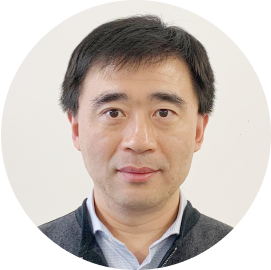
Technical University of Munich
Speaker for Workshop #4
Prof. Bing LI received the Dr.-Ing. degree from Technical University of Munich (TUM), Munich, Germany, in 2010 and finished the Habilitation there in 2018. He is currently leading a research team with the Chair of Electronic Design Automation, TUM, working on robust in-memory computing with RRAM and optical components, high-performance and low-power design of digital accelerators for neural networks, as well as machine learning for EDA. He has served on the Technical Program Committee of major conferences including DAC, ICCAD, DATE, ASP-DAC, and MLCAD etc.
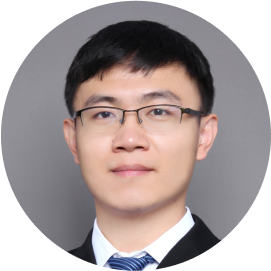
Peking University
Speaker for Workshop #4
Prof. Meng LI is currently a tenure-track assistant professor in Peking University, jointly affiliated with Institute for Artificial Intelligence and School of Integrated Circuits. Before joining Peking University, he was staff research scientist and tech lead in Facebook On-Device AI team focusing on efficient AI algorithms and hardware/systems for next generation AR/VR devices. Prof. LI received his Ph.D. degree from the University of Texas at Austin in 2018 and his research interests lie in the field of efficient and secure multi-modal AI acceleration algorithms and hardware. Prof. Meng LI has published more than 60 papers and received two best paper awards from HOST 2017 and GLSVLSI 2018. He also receives EDAA Outstanding Dissertation Award, First Place in ACM Student Research Competition Grand Final (Graduate Category), etc.
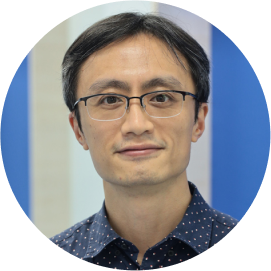
The University of Hong Kong
Speaker for Workshop #4
Prof. Ngai WONG is currently an Associate Professor with the Department of Electrical and Electronic Engineering (EEE) at HKU, and the Programme Co-Director of its Electronics Engineering (ElecE) Programme. His research interests lie in the development of efficient linear algebraic techniques and model order reduction (MOR) algorithms toward applications in electronic design automation (EDA), linear and nonlinear system identification (sysID) and simulation, compact deep neural network (DNN) design and edge AI implementations.
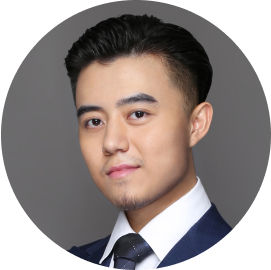
Sinovation Ventures
Speaker for Entrepreneurship Workshop
Mr. Nero WANG, Executive Director / Semiconductor General Manager of Sinovation Ventures, focuses on deep tech (AI, IoT, Semiconductor, etc.). Nero has led investments in National Chip(AIoT/STB chip), DPI(Industrial Internet), Y-semi(Server CPU), Flagchip(auto-grade MCU), XYZ Robotics(AI/3D vision/Robotics), Prophesee(Dvs sensor), Tansn(Translation + NLP), Suirui (Video Cloud, unicorn), AInnovation(AI, HK:02121), Jing OS (Linux OS), Broadlink(AIoT), Langboat(LLM, AIGC, NLP), Nanostep(Wire Bond equipment), among others. Nero was the former leader of 360 hardware ecosystem, Co-founder of MUSES incubator, Founder of Guoyuan Delivery, Founder of College Students Sponsorship Web, Founder of the National College Students New Media Development Forum. He also worked at Microsoft, Weibo and Qihu 360. Nero graduated from Queen Mary University of London in Telecommunication & Management, and Beijing University of Posts and Telecommunications.
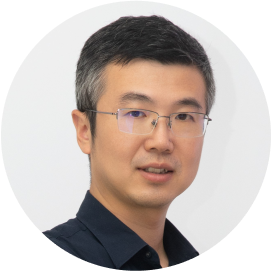
Vivo
Speaker for Entrepreneurship Workshop
Mr. XIA, Senior Director of Chip Planning & Architecture Department of Vivo, has about 20 years of experience in mobile communication chip industry, he has worked in many key positions such as chip research , design, planning to develop flagship mobile SoC in China.
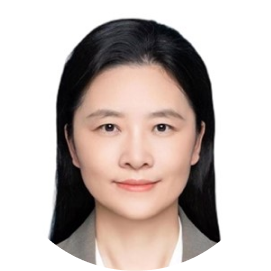
GeneSense Technology Inc.
Speaker for Entrepreneurship Workshop
Dr. Mei YAN, the founder and CEO of GeneSense Technology Inc., received the Ph.D. degree in Electronic Engineering at the State University of New York at Stony Brook in 2004. She has participated in the CMOS image sensor chip research and development in United States for almost 10 years. Since 2010, she has been engaged in the research of biomedical chips and systems and Genome Sequencing Industry. Dr. Mei YAN has published one book on biosensor chips, more than 10 patents and more than 30 SCI papers.
